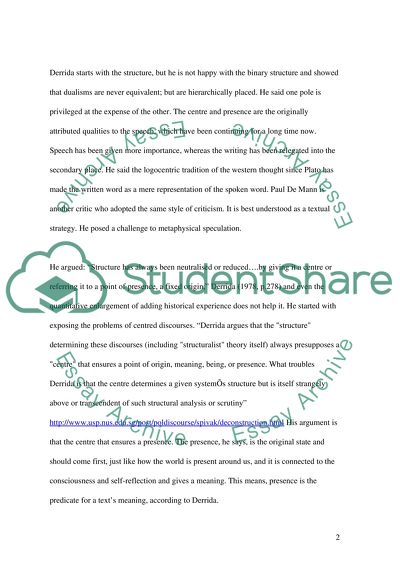Cite this document
(Derrida's Deconstructionism Issues Essay Example | Topics and Well Written Essays - 1500 words, n.d.)
Derrida's Deconstructionism Issues Essay Example | Topics and Well Written Essays - 1500 words. https://studentshare.org/philosophy/1505019-derridas-deconstructionism-and-how-it-is-a-critique-of-the-concepts-of-presence-and-centre
Derrida's Deconstructionism Issues Essay Example | Topics and Well Written Essays - 1500 words. https://studentshare.org/philosophy/1505019-derridas-deconstructionism-and-how-it-is-a-critique-of-the-concepts-of-presence-and-centre
(Derrida'S Deconstructionism Issues Essay Example | Topics and Well Written Essays - 1500 Words)
Derrida'S Deconstructionism Issues Essay Example | Topics and Well Written Essays - 1500 Words. https://studentshare.org/philosophy/1505019-derridas-deconstructionism-and-how-it-is-a-critique-of-the-concepts-of-presence-and-centre.
Derrida'S Deconstructionism Issues Essay Example | Topics and Well Written Essays - 1500 Words. https://studentshare.org/philosophy/1505019-derridas-deconstructionism-and-how-it-is-a-critique-of-the-concepts-of-presence-and-centre.
“Derrida'S Deconstructionism Issues Essay Example | Topics and Well Written Essays - 1500 Words”. https://studentshare.org/philosophy/1505019-derridas-deconstructionism-and-how-it-is-a-critique-of-the-concepts-of-presence-and-centre.


